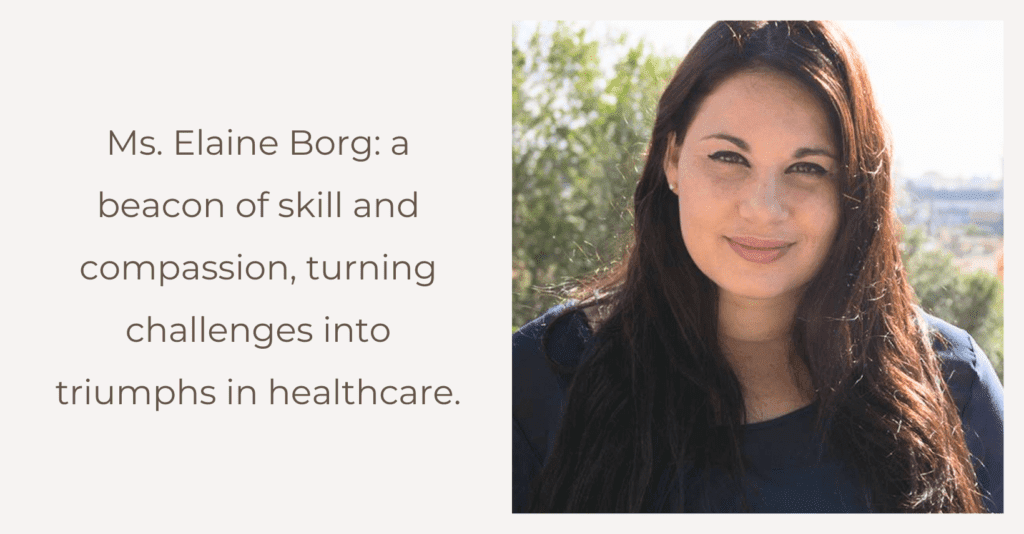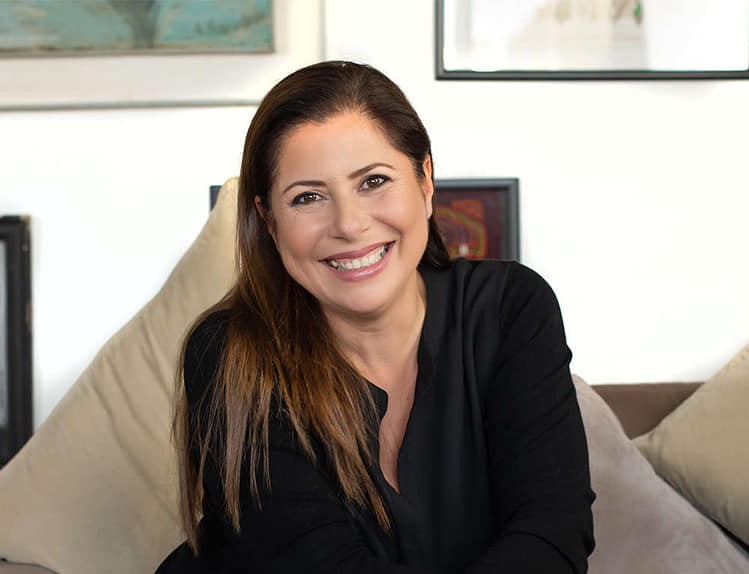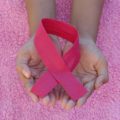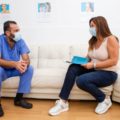
I recently had the pleasure of meeting up with Ms. Elaine Borg, a General Surgeon with a sub-speciality in Oncoplastic Breast Surgery. She is highly qualified and experienced surgeon who has spent the last few years working both in Malta and in the UK. A lovely, very down-to-earth person. We chatted about women’s health issues, travel, food, cooking, children, COVID, her PhD, and the inevitable guilt of motherhood. I thoroughly enjoyed meeting her in person because, although Ms. Borg is very busy, she tells me, “I appreciate face-to-face contact even more since COVID!”
I had a lot of questions for Ms. Borg because I’m always intrigued and find women who are trailblazers very inspirational, especially those who work in previously male-dominated areas of society, like, for example, surgery. So I was very curious to know all about how Ms. Borg’s journey started and what were the driving forces behind her success.
The Path to Surgery: A Journey of Determination
Have you always known what you wanted to do—did you always want to become a surgeon?
At first, I wanted to become a physiotherapist, a profession which I admire. This is because when I was younger, I was very much into sports. When I got into medicine, I knew from the start that I preferred surgery over other specialities. I know of many others who had no idea what they wanted to become. That’s perfectly OK because everyone runs his or her own path. What I tell medical students and even surgical trainees, it’s good to have a plan, but if you don’t like the speciality you end up in, you can always change it—we will all remain working till age 65! I was lucky that my choice of speciality is the one that suits me best.
How difficult or not has it been studying and working in this field, which has for decades been totally male-dominated?
As a medical student, it is hard because there is a lot to study and sacrifices need to be made to prioritise learning. As a surgical trainee, it gets harder. You need to juggle studying for exams, working long hours, ensuring that the logbook is up to standard, and making time for your private life, which includes starting a family.
I gave birth three days after an exam and did another exam during my maternity leave. My husband took 1 year of parental leave to stay with our daughter, and the original plan was for us to be together whilst I specialised in the UK. Four months into my training abroad, COVID happened so we returned together back to Malta for a few months. When it was time for me to go back to the UK to complete my specialisation, we felt that we had a better support network in Malta, so my husband and daughter remained here.
As it was during the COVID pandemic, quarantine was enforced in both the UK and Malta, so all my leave would have been wasted on quarantine. It made more sense to postpone all my vacation leave till the end so I could return to Malta earlier. I spent a very long stretch of time, almost a year, away from my baby girl, so yes, it was extremely difficult at times. Honestly, I would not have managed if it weren’t for the support of my husband and family. The consolation is that my daughter was too young at the time, so she doesn’t remember.
Balancing Act: Family, Career, and Personal Growth
Talking about motherhood and children, how do you and your partner manage to both hold down important careers and equally share the child-rearing, child-caring and home-making responsibilities? What would you say to other career women going into motherhood to be aware of, and what, if any, are the things that you wished you knew then that you know now about juggling an important career with parenthood?
My husband and I are both involved in our daughter’s upbringing. Since I came back from abroad, I have had a more active role compared to him—and I enjoy it. We are also very lucky that we have a strong family support network. I feel that a good rapport with the other half is essential to thrive. I would not have done any of my accomplishments if I were in a toxic relationship, so I feel that choosing your partner wisely and maintaining good communication is a must. Not every family situation is the same, and career is only one aspect of our lives as women, so one needs to assess one’s current resources and needs and plan out accordingly. Sometimes, one aspect of our lives must give to allow another to thrive. Probably my best advice for women going into motherhood is—keep it real and don’t let yourself be burdened by the guilt of not being able to meet the expectations of how a perfect mother should be. Always do the best you can—it is very likely to be enough.
Innovating Breast Cancer Care: The Oncoplastic Approach
I know that you’ve also just achieved, amongst other things, your PhD and you have also specialised in Oncoplastic breast cancer surgery, which is a relatively new surgical discipline which involves the surgical removal of breast cancer, combined with plastic surgical techniques to achieve the best aesthetic outcomes. What’s next for you—where do you see yourself in 10 years’ time?
Thank you! It’s a relief to have finally completed my Ph.D. The reason why I started it off is that I wanted to have some laboratory-based research experience and satisfy the nerd in me. The problem is that now I got intrigued to do more! From the career aspect, I would like to have an official post as a consultant, continue making a positive impact on patients’ lives by remaining up-to-date with literature, guidelines, and new surgical techniques and continue to grow as a holistic surgeon. I think it is important to remain curious and keep learning to stay ahead. I would also like to remain involved in raising awareness about breast cancer prevention, early detection and treatment options. We have two excellent NGOs in Malta which do a lot of work on breast cancer awareness (shout out to Action for Breast Cancer and Europa Donna Malta). Both have been instrumental and have contributed a lot to the well-being of our patients, and it would be my honour to continue working with them. In 10 years’ time, I will also be supporting, very likely stressing, over my daughter’s O-levels. You have just opened a Pandora’s box there!
Who were your female role models growing up, and who inspired you to achieve and succeed? What led you to specialise in breast cancer surgery?
My number one role model is my mother. She worked extra hard, in addition to what my father made, to ensure that her three children lacked nothing. My mother is a pillar of strength in our family, showed us unconditional love and allowed us to reach our full potential. She never pushed me to do anything, but I knew that she had my back in whatever I chose in life. I owe her a lot.
Another female role model growing up is my secondary school teacher, Ms Steph, who not only made me fall in love with English literature but encouraged me, along with other students, to be creative and use our minds. She showed us that you can be strict but kind and humble yet strive for more. She was very down to earth and basically is the perfect example of how a woman can be everything. I met my other role model when I was a medical student. Professor Josanne Vassallo is an endocrinologist who is very empathic with patients and has impeccable bedside manners and communication skills. She has given me good advice over the years and has been an inspiration to be a better holistic doctor.
Re: what led me to specialise in breast cancer surgery? My aunt was diagnosed with breast cancer when I was 10 years old, and then, unfortunately, she had a recurrence. I remember the suffering this brought. Surgery has allowed me to have an active role in removing cancer and improving patients’ lives. Doing breast cancer research as part of my PhD has allowed me to understand cancer from a different aspect than that of a surgeon.
Empowering Advice: Navigating a Career in Surgery
I believe women like yourself are an inspiration to other women, especially to young women. Your success will inspire other women to realise they too can do it and can succeed. What do you think propelled you to achieve your goals, and what advice would you give young women starting out in tough, male-dominated areas?
I am the first one in my family, both paternal and maternal lineage, to become a doctor, and I didn’t know of any female surgeon right up to when I started medical school. Resilience, patience, willingness to work and a good support network are what helped me achieve my goals. I also had mentors who gave me invaluable insights and encouragement. I think everyone should choose their own path and if it is the least trodden or never explored before, then so be it. Seeing others achieve what one aspires to be does make it feel more within reach and may encourage some people to take the leap. My advice to young women would be to assess your priorities, and if you want it hard enough and are willing to work for it, then embrace challenges, believe in yourself and go for it.
Looking Ahead: Future Aspirations and Continued Impact
Do you only work as a surgeon with breast cancer patients, or do you also offer breast reconstruction surgery for aesthetic reasons? Can women who might have previously had breast cancer surgery come to you for improved reconstruction even years later?
I specialised primarily in General Surgery, so I also manage patients with abdominal pain, those who need endoscopy (gastroscopy and colonoscopy), skin lesions which need removal and ailments like hernias, haemorrhoids, etc.
I have sub-specialised in Oncoplastic Breast Surgery, and this has allowed me to offer superior aesthetic outcomes post lumpectomy (removal of the lump where the cancer is) and breast conservation in some cases where previously mastectomies (removal of the breast) would have been the only option. Trials and guidelines show that a lumpectomy followed with radiotherapy has the same overall survival as a patient who undergoes mastectomy. I am very pleased to say that I did the first LICAP (lateral intercostal artery perforator flap) in Malta, which can be offered in some select patients with a tumour on the lateral part of the breast. In this procedure, tissue on the side of the chest beneath the armpit is mobilised to fill in the area where the tumour was. My training in Malta, UK, and having had the opportunity to work as a consultant abroad has allowed me to master a repertoire of techniques which I can offer because all patients are different and one technique might suit one patient and not another. A decision is reached after an informed discussion with each patient.
I have attended various courses and went on to observe and be trained by specialists in their field so I also offer breast reconstruction surgery for aesthetic reasons like breast lift, breast reduction and breast augmentation with implants. If patients are unhappy with their outcome after cancer surgery, they can always approach me for a consultation, and we can discuss the options going forward.
Can women who have experienced a breast cancer diagnosis/require breast reconstruction visit you personally through private practice, and where can they reach you?
Yes, I do work privately, and one can make an appointment to see me at Da Vinci Hospital in Birkirkara, Lifescan in Naxxar, Beta Pharmacy in Ghaxaq, Remedies Campus Hub and St James Hospital in Zejtun.
It’s truly been a pleasure meeting you and getting to know you better. Thank you so much for taking the time for this inspiring interview. Congratulations on all your achievements!

Francesca Fenech Conti is passionate about social issues and has a BA in Social Policy. She is the Founder and creator of the women only facebook group Women for Women (Malta) and the Women for Women Foundation that works hand in hand with other NGOs and businesses to empower and support women, especially single mothers.
Francesca recently also launched Wham.com.mt to provide a much needed space on the local media scene to promote women’s voices and to provide women with a source of information regarding their general wellbeing.
Click here to check out Francesca’s full bio as well as a list of all her Wham published articles





